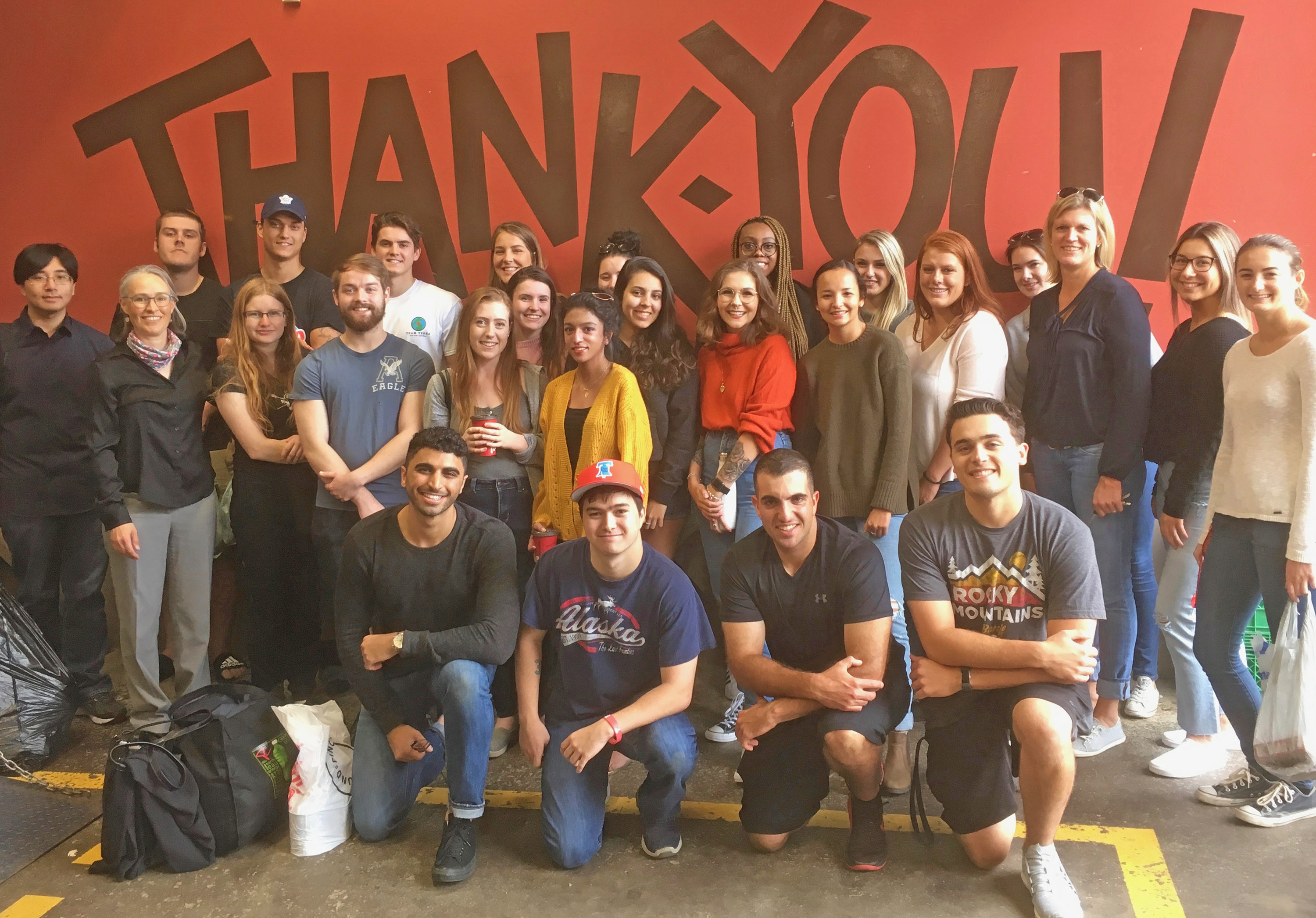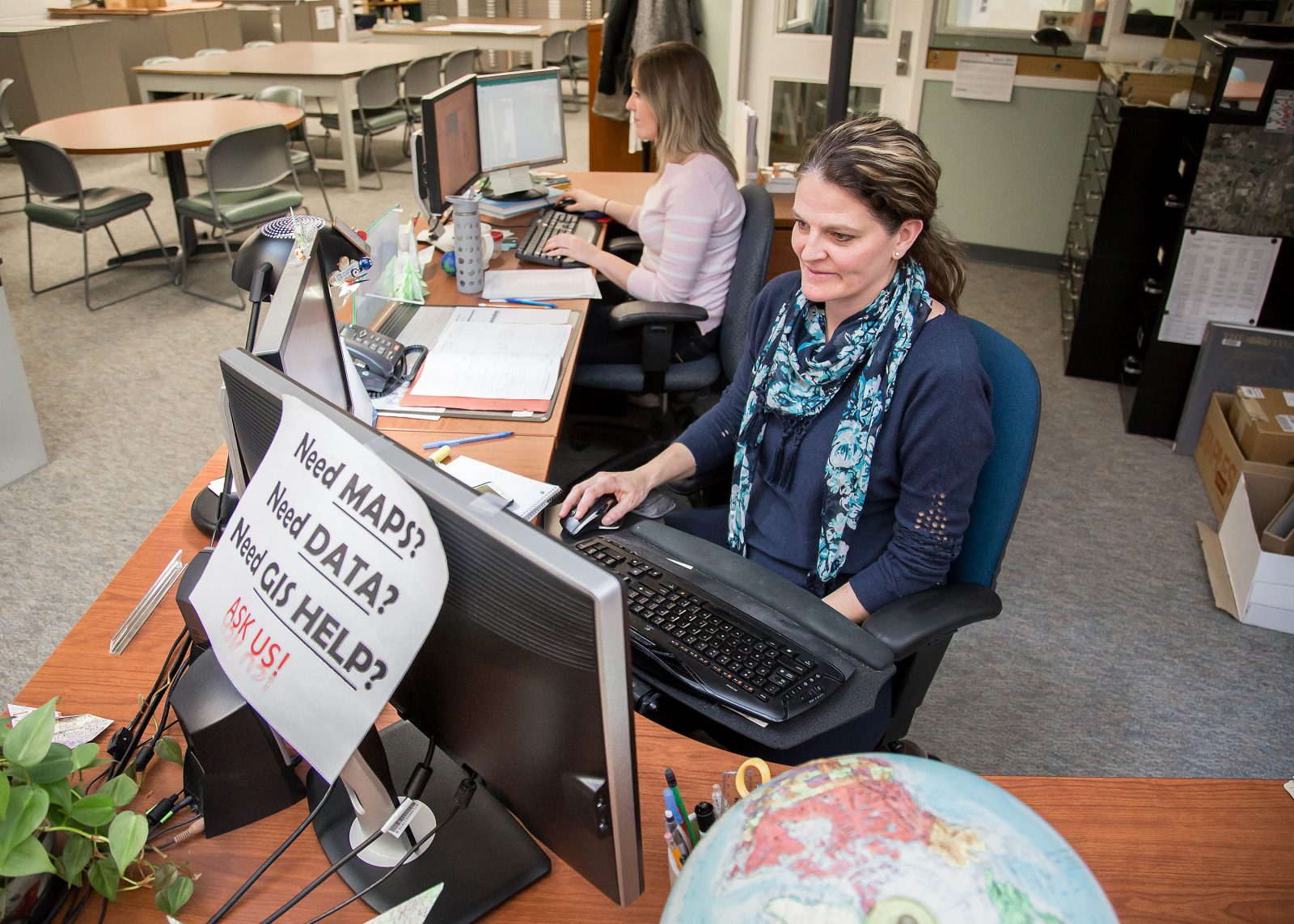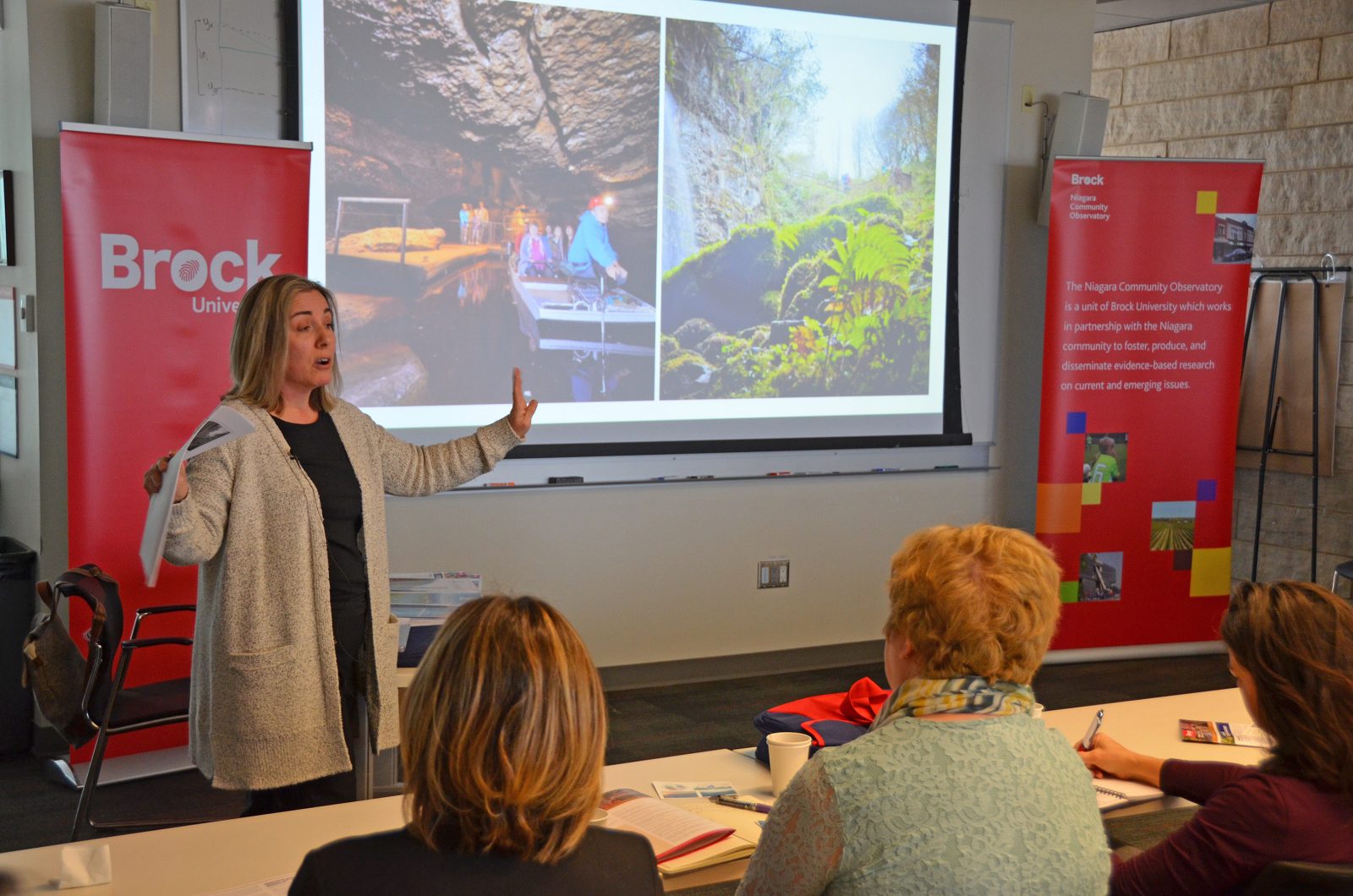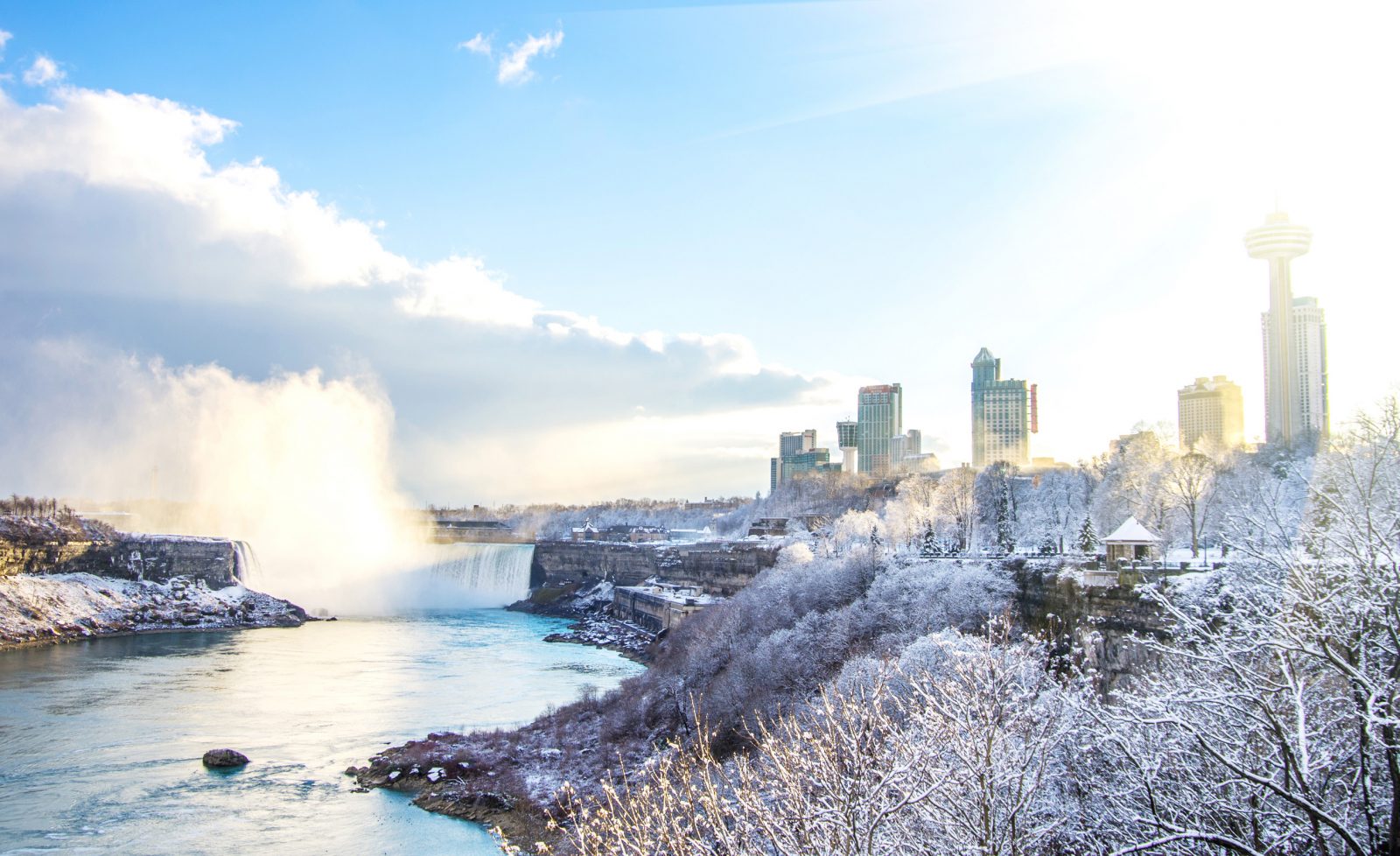REPOSTED FROM THE BROCK NEWS
APRIL 12, 2019 | by Cathy Majtenyi

Master student Alicia Azzano presents her research on how parents of infants displaying signs of autism spectrum disorder can be trained to teach their children skills. Azzano captured first place in Brock University’s 2019 Three Minute Thesis Challenge held Thursday, April 11.
Parents who observe signs of autism spectrum disorder (ASD) early in their child’s life may be able to reduce the severity of ASD, or even prevent a diagnosis, with the help of special techniques.
Master student Alicia Azzano researches how parents can be trained to teach their infants using strategies aimed at improving specific behaviours characteristic of ASD. The training includes a program called Behavioural Skills Training and Natural Environment Teaching.
“The long-term goal of my research is to see whether early symptom identification and early intervention mediated by parents before children are diagnosed with ASD will make a difference to ASD diagnosis or severity,” says Azzano, who is with the Department of Applied Disability Studies. She says results so far are encouraging.
Azzano presented her research at the final round of Brock University’s 2019 Three Minute Thesis (3MT) Challenge, capturing the first-place prize of $500.
She will represent Brock at the provincial 3MT competition, to be held at McMaster University Wednesday, April 17.
Now in its seventh year at Brock, the 3MT Challenge originated in Queensland, Australia in 2008 as a way for students to explain their research to a broad audience in plain, accessible terms. Presenters have three minutes and a single slide image to summarize their research.
“This whole experience has meant a lot to me because not only does it give me a chance to practise my presentation skills, but it also allows me to spread awareness about the importance my research can have for many families who have a child at risk for autism,” says Azzano.
Eight students competed in the 3MT preliminary round April 4, with three students — Azzano, Jennifer Wilkinson and Rachel Richmond, both from Applied Health Sciences — being selected to move to the final round April 11.

During the April 11 Mapping the New Knowledges conference, student research was also recognized through the presentation of the 2019 Jack M. Miller Excellence in Research Awards, given to research-based graduate students working on innovative projects. Recipients include (from left) Alison O’Connor, Sarah Walker, Carolyn Fast, Bradley Baranowski, Interim Associate Dean of Graduate Studies Heather Gordon, Matthew Mallette, Lynn Trudeau, Greig Inglis, Emily Ham, Fares Belkhiria and Carmen Long.
Richmond captured the second-place prize of $250 with her research presentation on the experience of how people manage their chronic pain. Wilkinson was awarded $100 for her talk on how the composition of membranes in muscle cells impacts the release of a particular protein that causes cell death.
Judging the presentations were Shane Malcolm, Executive Director of Leadership Niagara, Frances Hallworth, Executive Director of United Way Niagara and Mark Cressman, Regional Director, Postmedia.
“The three candidates were so great, it was a hard task to decide,” says Malcolm. “The level of how prepared each student was really elevated the calibre of the competition; all of them did an outstanding job.”
The 3MT finals were held during the Mapping the New Knowledges conference, an annual event that showcases graduate student research.
In addition to the 3MT challenge, student research was also recognized through the presentation of the 2019 Jack M. Miller Excellence in Research Awards, given to research-based graduate students working on innovative projects.
Miller served as Vice-President Research and Dean of Graduate Studies from 1999 to 2004. In his memory, students from Brock’s six Faculties are chosen to receive between $1,000 to $1,500 to support their research and scholarship.
“I’m thrilled to be recognized for my research, as it gives me the opportunity to share my work with the Brock community and strive for further academic excellence,” says Emily Ham, a master’s student in Earth Sciences who researches microplastics in Niagara’s environment.
This year’s Jack M. Miller award recipients are:
Faculty of Applied Health Sciences
- Bradley Baranowski, MSc in Applied Health Sciences, “Role of exercise induced BDNF on brain health”
- Matthew Mallette, PhD in Applied Health Sciences, “Effect of local muscle temperature manipulations on neuromuscular function”
- Greig Inglis, PhD in Applied Health Sciences, “Sex differences in the neural control of muscle”
Faculty of Mathematics and Science
- Emily Ham, MSc in Earth Sciences, “Microplastics in Niagara water systems: Implications for Niagara ecosystems and waste”
- Sarah Walker, PhD in Biological Sciences, “MicroRNAs and regulation growth cone turning in invertebrate neurons”
Faculty of Social Sciences
- Stephanie Murray, MA in Geography, “Mobile ‘Homes’: An Ethnographic Study with American Vanlifers”
- Alison O’Connor, PhD in Psychology, “A Multi-Methodological Approach to Understanding Deception Across Adulthood”
Faculty of Education
- Rachel St Hilaire, Master of Education, “Enhancing Instruction in a Changing World: Kindergarten Educator Collaborating to Implement Technology to Support Students’ Reading”
- Lynn Trudeau, PhD in Educational Studies, “Indigenous Researcher Identity: Reconciling Differing Spaces from an Ojibway Perspective”
Faculty of Humanities
- Carolyn Fast, MA in History, “The Un-Making of Difference: The Winding Road of Deinstitutionalization (1960-2018)”
- Carmen Long, PhD in Interdisciplinary Humanities, “Beyond Biology and Behaviour: Refiguring Pan/Epidemic Disease Stigma”
Goodman School of Business
- Fares Belkhiria, MSc in Management, “Does e-Government Technology Always Fit? Moderating Role of Technology-Job Fit”








